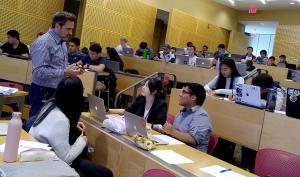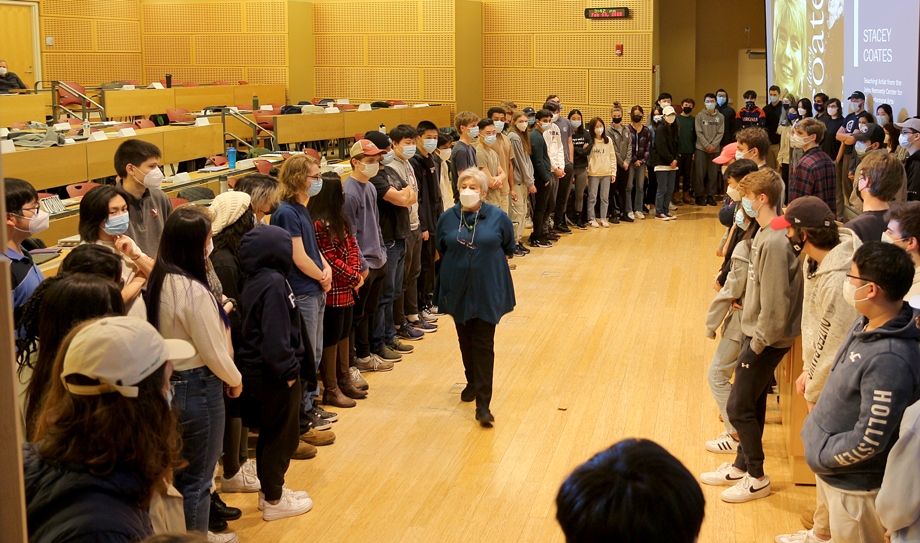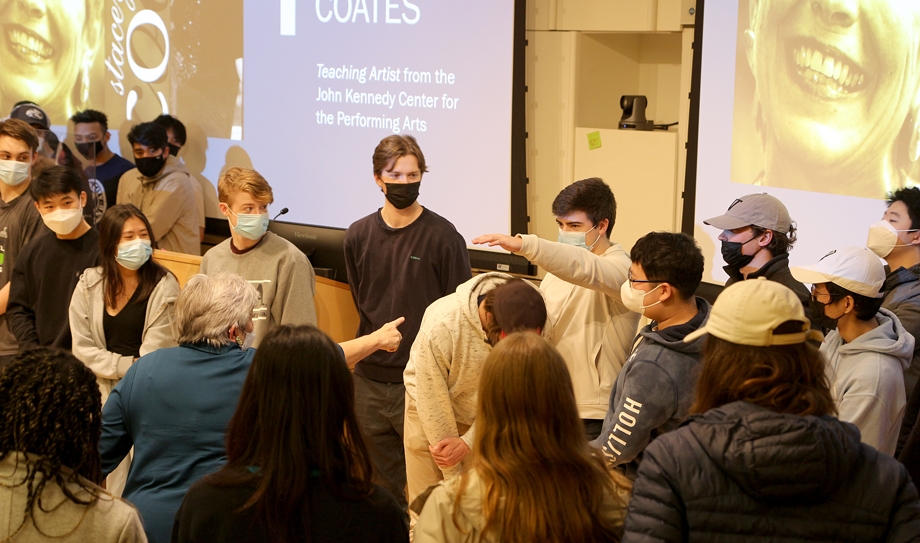
Over his four years teaching Human-computer Interaction in Software Development at the University of Virginia, Panagiotis Apostolellis has seen student design teams come up with some inspiring projects.
Consistently, one or two groups will choose socially conscious projects such as a shopping cart for the visually impaired or a device for epileptic patients to help their doctors treat them more effectively.
But what he can also count on every semester is that some computer science students will struggle with the class in one crucial area: working effectively on a team.
“The class is unique, especially in the highly technical computer science curriculum,” said Apostolellis, an assistant professor of computer science at the UVA School of Engineering and Applied Science. “It’s design- and project-heavy for groups of five students, and it’s very interdisciplinary. That’s the nature of human-computer interaction as a field. It is as much about cognitive science, sociology, psychology and communication as it is about computer science.”
For many students, Apostolellis said, it’s the first computer science course in which they can’t code their way to an A-plus. Students have to rely on their teammates to come through on assignments and be accountable themselves, with “large deliverables every three to four weeks,” Apostolellis said.
Since team projects are about 50% of their grade, Apostolellis has tried cajoling, warnings, peer evaluations, 1-on-1 meetings, even written contracts to improve team dynamics, but many students just haven’t developed the necessary skills yet.

This semester, he’s launched a project to get students in touch with their values. And he brought in a professional.
Stacey Coates, a dramatist and education consultant for the John F. Kennedy Center for the Performing Arts in Washington, uses drama to teach team building, collaboration and creativity. She has taught audiences of all ages and in settings ranging from K-12 and college classrooms in more than 40 states to the Seeds of Peace Conference in Prague, where she trained educational delegates from war-torn countries.
While Apostolellis isn’t drawing conclusions about the success of his endeavors yet, he thinks Coates did connect with his students during the 75-minute workshop.
“The guest was amazing at engaging students in understanding the difference between ‘watching out for each other’ and ‘pouring paint,’” Apostolellis said.
“Pouring paint is Stacey’s trademark for explaining, through a dramatic act of pouring imaginary paint on a student’s imaginary art project, how we sabotage ourselves and others in a team by not being supporting, confident, collaborative, paying attention, etc.”
Students’ comments on an evaluation bore out Apostolellis’ observation, with one student noting Coates was creating a pleasant mental image of student art projects at the moment she “ruined” one of those art works.
“I did not expect that to happen at all,” Charlie Beall, a second-year computer science major, wrote. “I felt it was a very smooth yet impactful transition into talking about ‘pouring paint’ onto other people, making it an effective metaphor for having a negative impact on teammates.”
To drive home the point, Coates had the students role play real-life examples of pouring paint, such as falling asleep or using a cell phone instead of paying attention to team members, as well as examples of collaborative behavior like listening and offering encouragement.

The dramatizations led into students volunteering to share their own “spilled-paint” experiences. Some students were surprised by how many classmates had stories similar to their own, realizing they are not the only ones who sometimes feel mistreated or undervalued in group settings.
It was a rare moment of emotional vulnerability in a computer science class, said Hannah Han, a fourth-year computer science major.
“This allowed us to bring our whole human selves to the classroom, our teams and our project. I very much enjoyed this workshop,” said Han, who is minoring in drama.
“When we can share a part of ourselves in a supportive environment, it’s easier to trust and care for one another. We value everyone’s contributions, we help each other, and we express our appreciation,” Han said. “We all want to do well in this course at the end of the day. But I think we’re more willing to work hard because we want each other to succeed.”
Apostolellis, who has a master’s in human-centered computer systems in addition to his master’s and Ph.D. in computer science, also earned a graduate certificate in human-computer interaction while studying for his graduate degrees at Virginia Tech. He is passionate about the subject, and about teaching communication, creativity and other soft skills, he said.
“I find it easier for me to engage students over an HCI project than a typical programming course or a theoretical course on computer architecture or algorithms. I appreciate classes buzzing with activities,” he said, adding this side of his nature helps explain why he earned a Henry Kinnier award.
The Kinnier Award, given to one UVA Engineering faculty member every year, is among several awards given across Grounds by the Mead Endowment, an organization UVA alumni established to inspire faculty to develop caring, mentoring relationships with students. The endowment funds “Dream Idea” projects of faculty members’ choosing. The projects are intended to engage students and faculty in a meaningful way outside the classroom.
